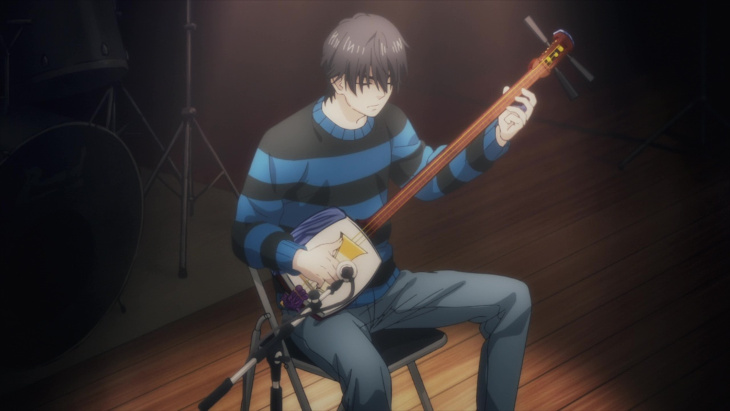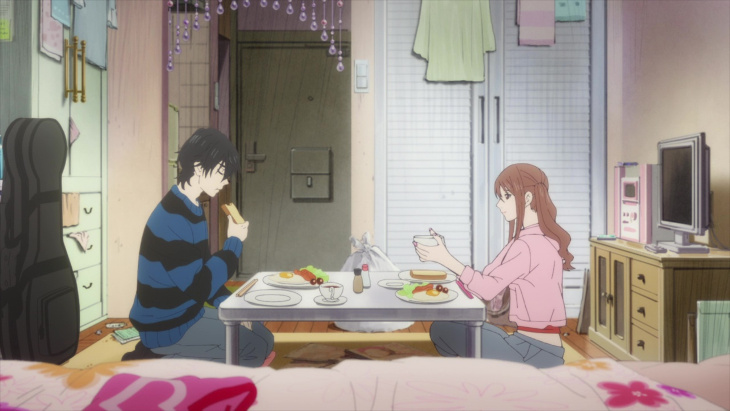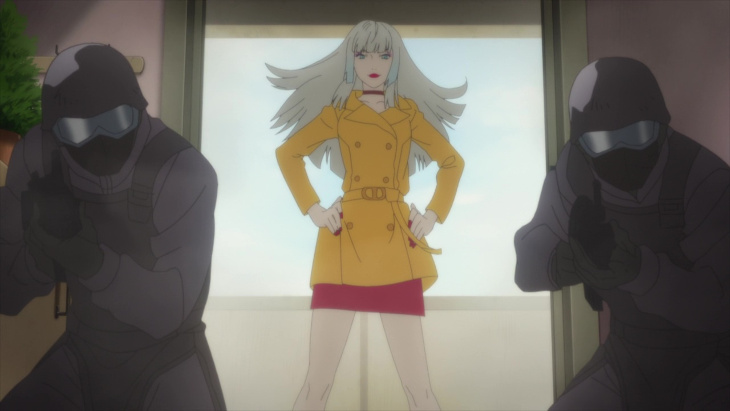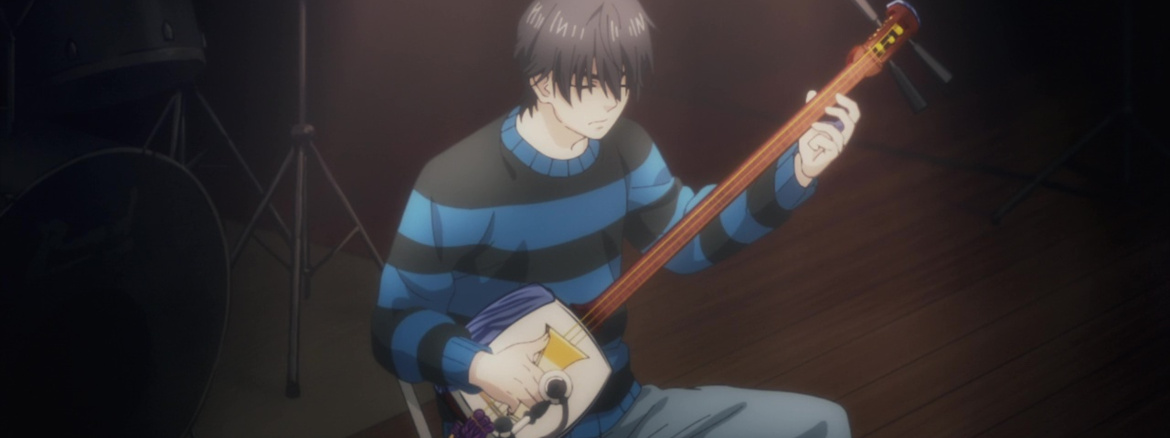
“If I die, stop playing the shamisen. Until you realize how you sound so disgraceful, you are not allowed to play it.”
My opinion of Mashiro no Oto’s premiere is a little all over the place, which I suppose makes sense because that’s true of the episode itself. There are aspects of this premiere that I really liked. The shamisen is a beautiful instrument and one that I haven’t actually had a ton of opportunities to listen to, so a show that is centered around it is certainly appealing. On the other hand, I have no idea what this show wants to be. The tone falls somewhere between March Come in Like a Lion and Jellyfish Princess, and that’s a bit too wide a gulf. Most of the episode seems to take itself quite seriously, but it also ends with a woman having her own personal police squad breach an apartment because she wanted to talk to a shamisen player. Before that, the show had taken on a moodier and more introspective atmosphere, and while I can’t say it worked 100%, it was more cohesive without that strange last minute curveball. Mashiro no Oto is a show that appears to have an intriguing message about finding your own sense of identity and not isolating oneself, but this first entry’s own sense of identity is undermined by a confused tone and rushed pace.

Mashiro no Oto follows a young man named Sawamura Setsu who is left devastated by his grandfather’s passing. His grandfather was an accomplished shamisen player who requested that, when he passed, Setsu stop playing the shamisen. His message to Setsu was to go and find other influences and to seek out new experiences before returning to the music, because otherwise his failure to expand his perspective would limit his playing and blind him to his own shortcomings. With this driving him, Setsu heads to Tokyo, but is quickly overwhelmed and stumbles into trouble, rather literally. A woman named Tachika Yuni comes to his rescue and ultimately provides him housing. However, Yuni isn’t without her own problems as her attempts to get into acting have stalled and her agent has been pushing her to go into less reputable productions. From there we have conflicts involving Yuni’s boyfriend, a whole cheating scandal, two shamisen performances, and a whole bunch of interpersonal drama, all in the first episode. That’s a lot to cover, and some of it feels quite rushed. The end result is that I know the show will center around Setsu’s experiences with the shamisen, but little else. This is a very chaotic way to start a series, and I’m not fully on board yet.

The production is being handled by Shin-Ei Animation. As a studio, they have a long history, but I’ve only sampled a small number of the titles they’ve worked on. The two that I recognize are The Knight in the Area which was a really, really stupid soccer series and Sweetness and Lightning. I also evidently wrote a review for the show Trickster which they produced back in 2016, but I think I’ve entirely blended that with Bungo Stray Dogs in my memory. Their production here is really good… for the most part. There’s a fight scene that occurs when Setsu first arrives in Tokyo and it’s not great. Still, the moments where it counts are really good. The playing of the shamisen is enrapturing, both in terms of the visual details and the music itself. There’s no OP for this episode, but the ED is quite pleasant. I’m not sure I’d listen to it every episode, but given it’s certainly a possibility. The visuals are mostly minimalist for that ED, but the shamisen accompaniment is really the star there.
Before I wrap up, a few Notes and Nitpicks:
- The most notable piece of shamisen music I can recall listening to was the cover of While My Guitar Gently Weeps that Regina Spektor did for the movie Kubo and the Two Strings, a film I still haven’t seen.
- One of the characters in this first episode is a complete ass, but over the course of a few minutes seems to have a complete heel-turn and I think is supposed to become likable? Maybe this would have worked better as a double length episode.
- I know I referred to the show as Mashiro no Oto throughout the review, but used the English translation, Those Snow White Notes, in the title. What can I say… the translation is a cool title, but Mashiro no Oto is much quicker to type.




Add comment